The coffee tastes bad because it's not good? You may have misjudged the barista! Bitterness is not necessarily a problem of cooking.
Professional coffee knowledge exchange more coffee bean information please follow the coffee workshop (Wechat official account cafe_style)
I believe that many coffee lovers in exploratory shops have had the experience of getting a cup of coffee that they have been waiting for for a long time, and as a result, it is either too sour or too bitter, or the taste is so mixed that it is not good at all. "Wow! It tastes terrible-"even with a polite smile on your face, you will inevitably complain."
"with such an obvious smell of herbs, maybe I would taste better than him -" some experienced enthusiasts may even think that it is not as good as their own.
However, is this really the case? The coffee is not good because the barista is not good enough to brew. Maybe someone else would be better?
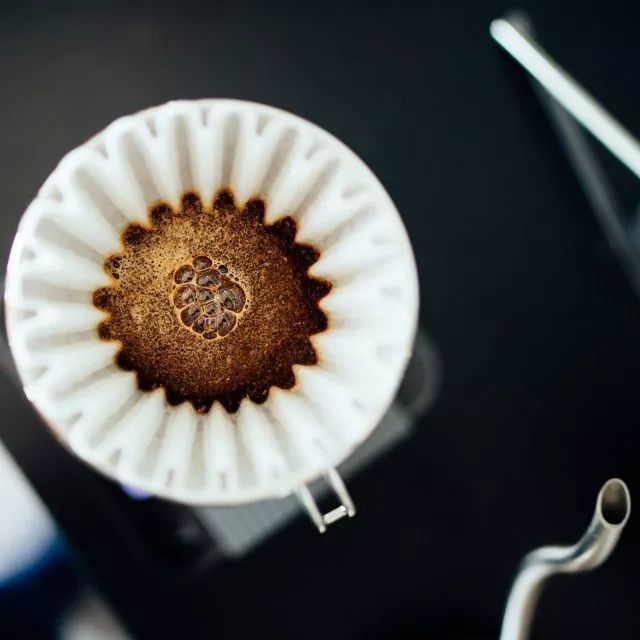
Is the coffee not good because it is not made well?
Is the coffee good? This is really a very subjective feeling. However, a long time ago, the European Fine Coffee Association (SCAE) put forward an argument that "good coffee" should have a standard extraction rate and concentration: the Golden Cup Theory (Gold Cup), which holds that "good coffee" must meet two conditions at the same time:
1. The extraction rate is between 18% and 22%.
two。 The coffee concentration is in the range of 1.2% Murray 1.45%.
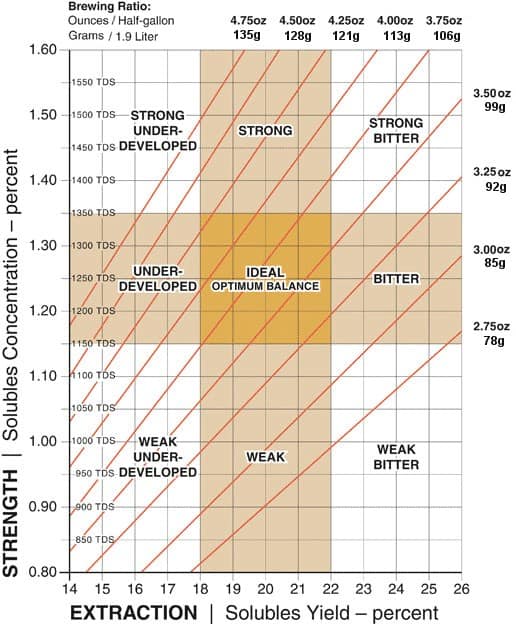
There are still a lot of opinions about this picture, and people have different taste preferences and different numerical definition standards in different regions. However, although the numerical definitions are different, the interpretations of "Underdeveloped" and "Bitter", "Weak" and "Strong" are generally acceptable.
Simply put, over-extraction (Strong or Bitter) refers to "coffee powder releases too much into the coffee liquid", while under-extraction (weak or underdeveloped) is the opposite state at the other end of the axis that "the flavor that the coffee powder should release is not properly released".
In fact, the conclusion expressed by the golden cup theory is very simple. The vertical axis of the chart is the concentration of coffee, and the horizontal axis is the extraction rate of coffee. When the concentration of your brewed coffee is between 1.2 TDS and 1.4 mol, and the extraction rate reaches 18% color 22% at the same time, it is considered to be within the ideal extraction range.
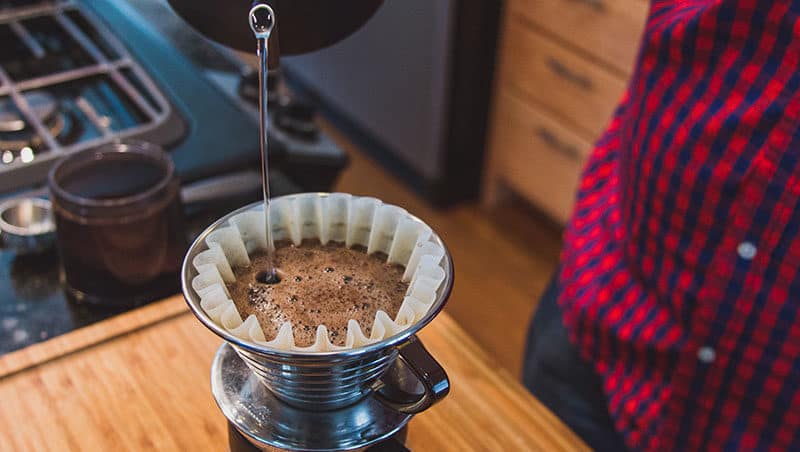
So, is this cup of coffee not good if it falls within the ideal range of extraction?
Generally speaking, when it comes to the concept of extraction, it is easy to directly associate [over extraction] and [insufficient extraction] with [bad taste]. However, over-extraction or insufficient extraction itself should refer to an objective concentration state. To put it simply, it means that the taste of the whole cup of coffee is not what we want when it is overcooked or undercooked. As for whether the coffee tastes good or not, it should be another matter.
We often associate the flavor of coffee that is over-extracted or inadequate, anyway, without falling within the "golden cup" ideal extraction range, with coffee flavor defects. For example, we usually attribute the bitterness of coffee to over-extraction. This is actually a misunderstanding.
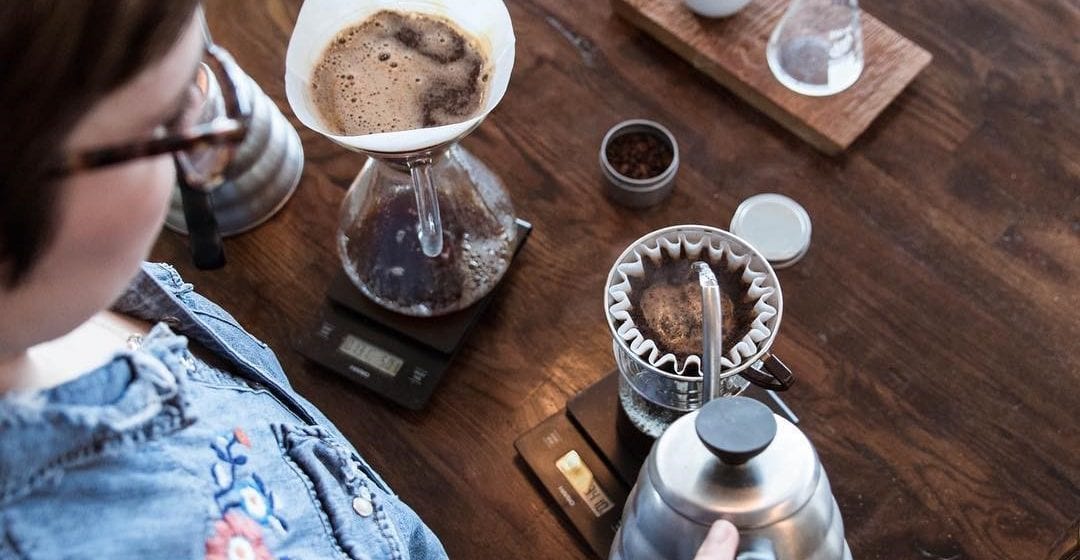
[over-extraction] or [insufficient extraction] are just trying to determine whether the brewing is appropriate by the concentration, regardless of whether it is good or not, the standard is not necessarily in the concentration, and the reason why a cup of coffee tastes good or bad does not necessarily lie in the brewing process.
The limit of brewing has been determined at the end of baking. Although the chemical reaction of coffee beans will continue after baking, in theory, "there is no flavor in ripe beans, no matter how to flush them out." this is the most basic iron rule for coffee brewing.
Under this premise, most of the reasons why a cup of coffee tastes bitter are:
There is bitterness or miscellaneous taste in the ripe beans of ① coffee, which is not specially avoided when brewing, so it will naturally bring the bad taste into the cup.
② coffee is too strong to taste bitter or so messy that you can't find out what the main flavor is.
As for everyone's differences in taste, let's not discuss this for the time being.
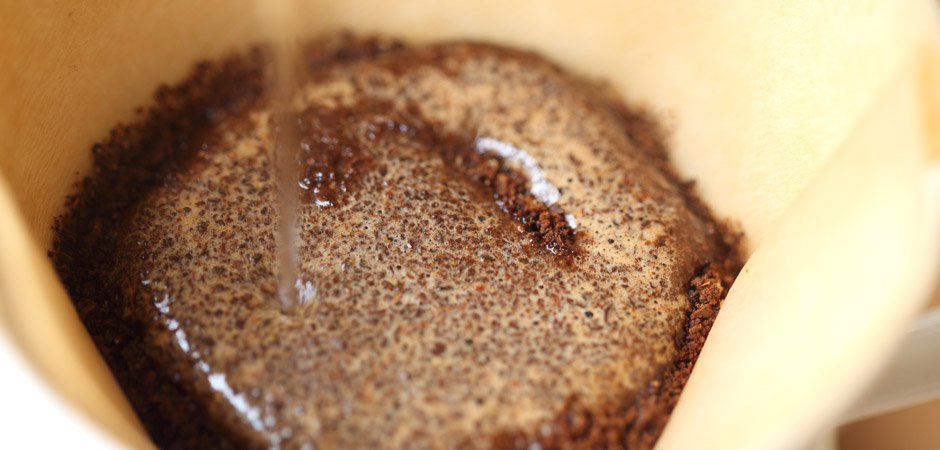
Bitterness does not necessarily come from improper cooking.
Simply put, coffee brewing is a process of bringing flavor into the water, so we can quickly come to a small conclusion: "if there is no flavor in the ripe bean itself, it will not come out." Then deduce from this conclusion: "whatever comes out is the taste of the coffee bean itself." these two things. The bitterness of a cup of coffee is nothing more than too high extraction rate or too high concentration.
If the coffee has an uncomfortable bitter, disorganized or irritating taste, nine times out of ten it is caused by ripe beans, which may be improperly roasted or the quality of the raw beans themselves is not so good. When the extraction rate is low, the sweet and sour feeling will be more obvious, and may also cover up the defective flavor, while when the extraction rate becomes higher, the bitter taste will be more obvious. The "high extraction rate" here does not mean that the extraction rate exceeds 18% of the golden cup criterion, but that your extraction rate exceeds the limit of "bitterness becomes obvious". If you want to solve the problem, you can only try to avoid defects in the cooking process, otherwise even if the extraction rate is extremely high, it will be uncomfortable to drink.
Because it has been unable to change the established facts, we can only hide it as much as possible, perhaps by lowering the water temperature, adjusting the degree of grinding, sieving fine powder or speeding up the pace of cooking, and so on. Try to analyze the factors that cause the bad taste (it may be time, grinding degree, powder amount, or fine powder amount), and then try to cut down the causes of the bad flavor, or adjust the technique so that people can't drink it.
Because the problem is caused by the baking end, cooking can only try to correct it, and it is impossible to solve it completely.
The first question is that the taste you drink is not much embellished, and then you need to be able to drink how much bad it is, but people with this ability usually know what the problem is as soon as they drink it, and there is no need to explore the search process.
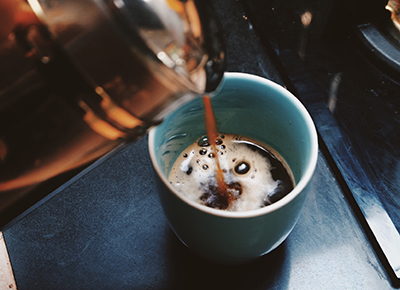
How to distinguish the root cause of bitterness
People's sense of taste has a certain bearing capacity, when it exceeds the load, it will only feel bitter or miscellaneous. If it is only the bitterness caused by excessive concentration, the simplest way is to dilute it with water. As long as a small amount of hot water is added to the coffee in question, stir it and drink it again. If it is still bitter, it may be either the roast or the raw bean itself.
Maybe the raw bean itself has this smell, or the baker has done something inappropriate at some stage of baking, such as giving too much firepower or throttle adjustment.
If the bitter taste turns to sweet or disappears after mixing with water, then the root of the bitterness almost certainly comes from cooking, and this simple concentration is too high. it may be caused by too high initial temperature, too much powder, too fine grinding, too much fine powder or too slow cooking rhythm, and the overall time is too long.
Make sure that the problem is cooking, and then adjust and correct it from the cooking setting, although many people do not think that the bitterness that will melt is a bad taste.
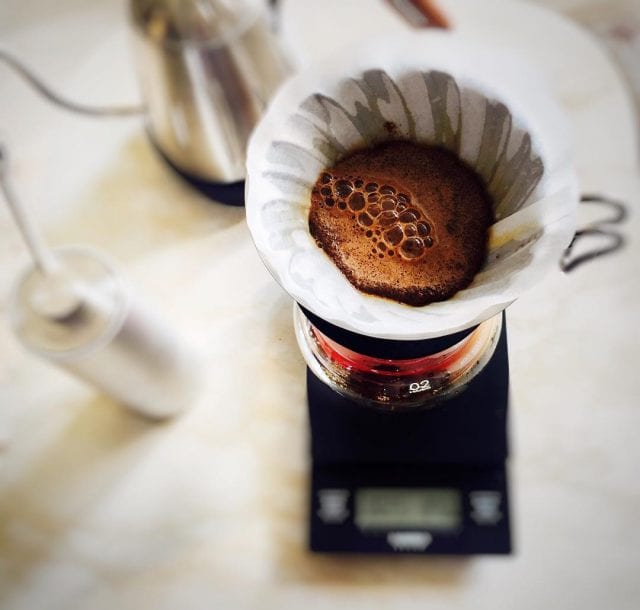
Excessive bitterness and exquisite bitterness
It is true that too strong coffee will taste bitter, but the bitterness will only make you aware of it at the entrance and will not stay in your mouth for too long. As soon as your saliva is secreted, the taste will turn into sweet taste. Even well-baked coffee will make you unaware of the uncomfortable bitterness, even the deep roasting.
In fact, in the cognition of some coffee lovers, they will say that some bitter taste is good bitter taste, because this kind of bitter taste can increase the richness and level of taste, just like the process from sour to sweet, the process from bitter to sweet is also changeable. But this can be risky, and once your coffee is really overcooked, it's easy to feel disorganized because you can't get the details of the taste.
However, this approach is challenging another limit of taste endpoints, pursuing a state of "bitterness but not scorching", which is not the model of shallow baking talk nowadays.
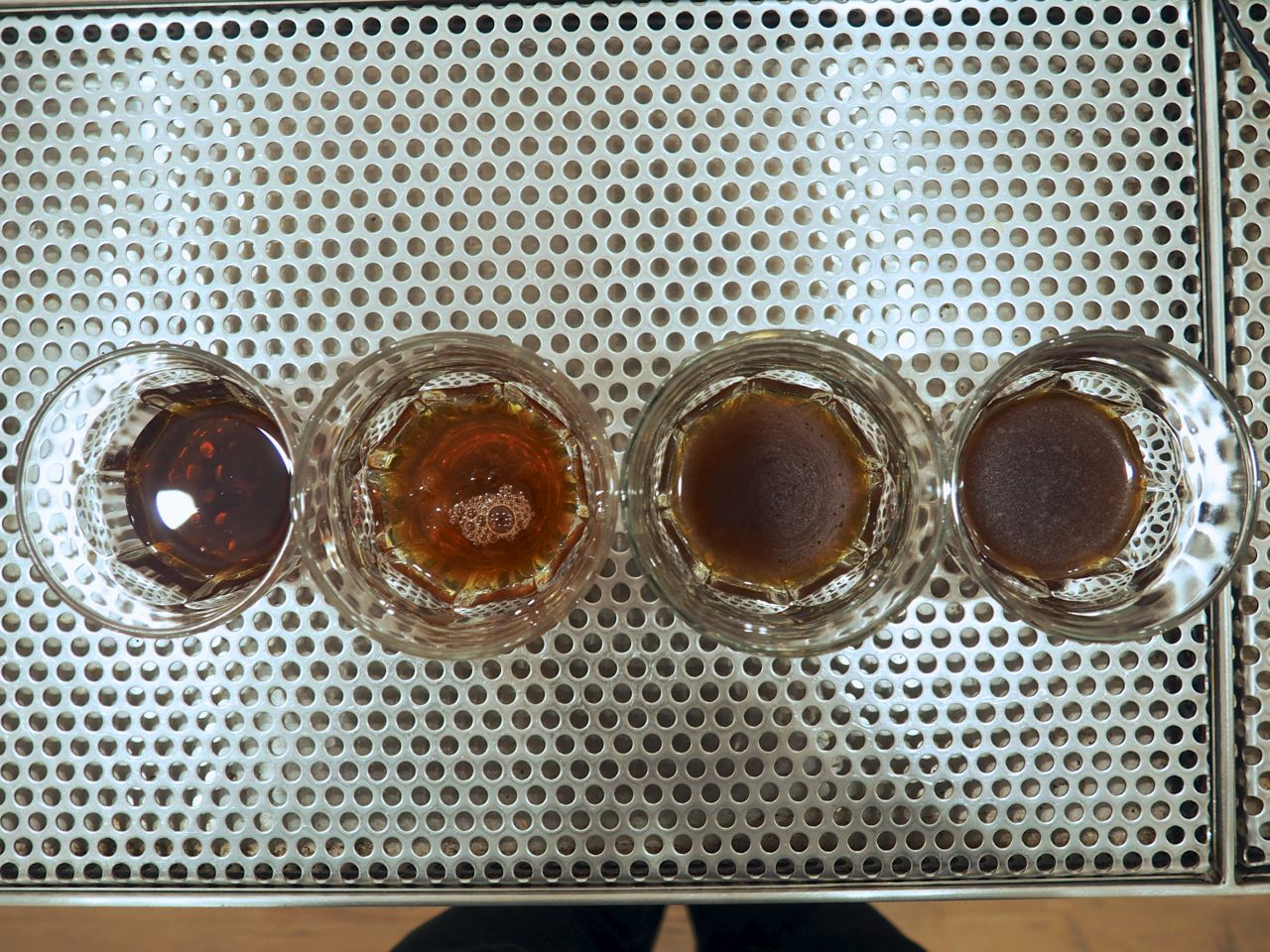
In fact, what is really outstanding refers not only to bitterness, but also to "the excessive development of flavor". Because cooked too much taste, including all people do not like the taste, perhaps sour, may be astringent, may be bitter, in short, not sweet. So over-extracted coffee is not bitter, but miscellaneous.
Brewing has less effect on the quality of coffee.
Of course, the purpose of writing this article is not to wash white for those who are "not good at learning" and whose coffee is really bad to drink, but to face up to the influence of brewing on the quality of a cup of coffee. "the problem of baking should be solved from baking, and the problem of brewing should be solved from brewing." Instead of generalizing why coffee is not tasty with over-extraction or under-extraction, we should further find out whether the real root cause of the problem is raw beans, roasting or brewing.
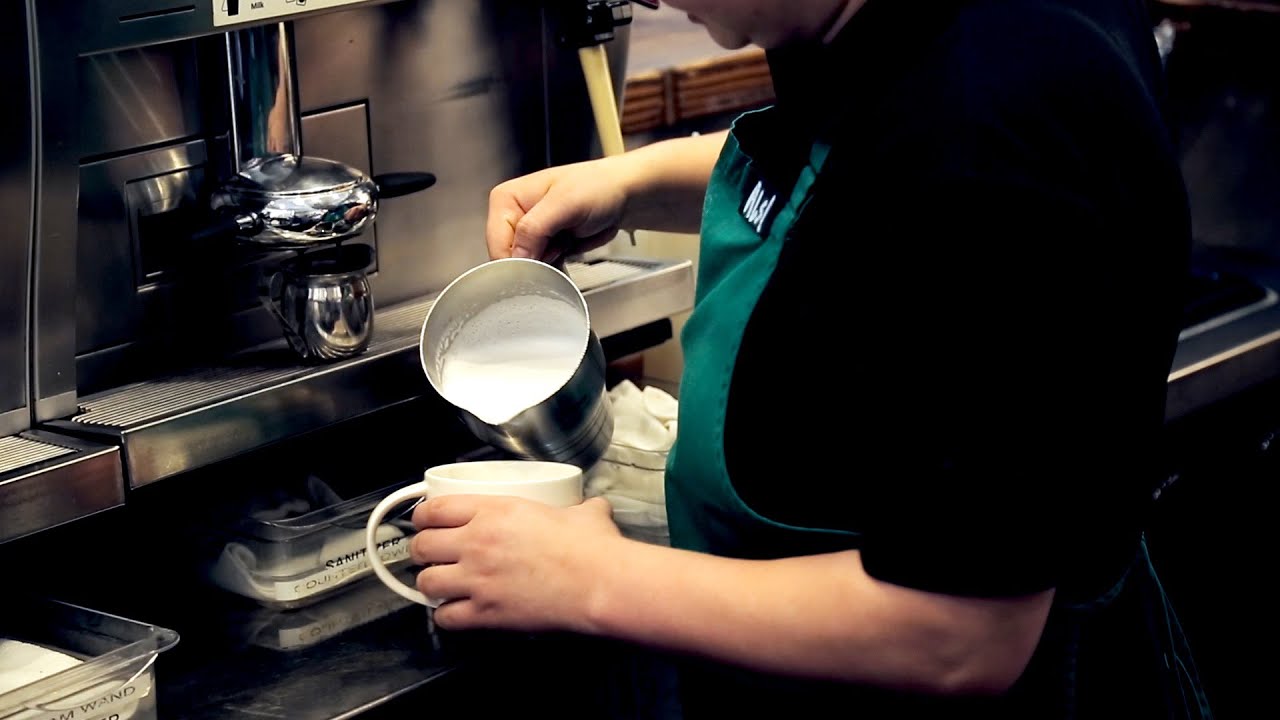
Most of the flaw in the flavor of a cup of coffee comes from raw beans or roasting, which should not be compared with the bitterness of misbrewing. Don't associate the quality of a cup of coffee too much with the brewer. If it tastes good, it is the cook's skill to get home and express it well; if it doesn't taste good, sometimes it may be really bad beans, which has nothing to do with whether he is a green apron or a black apron.
END
Important Notice :
前街咖啡 FrontStreet Coffee has moved to new addredd:
FrontStreet Coffee Address: 315,Donghua East Road,GuangZhou
Tel:020 38364473
- Prev
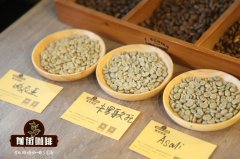
Stories about coffee beans, the most classic shepherd stories and Arab monks
Professional coffee knowledge exchange more coffee bean information Please follow the coffee workshop (Wechat official account cafe_style) Coffee beans, which refer to the plant fruits used to make coffee. In a broad sense, there are two kinds of coffee beans in the world, Arabica beans and Robosta beans. The fruit of coffee consists of two oval seeds opposite each other. The connecting side is a flat joint, which is called flat bean.
- Next
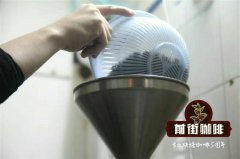
What is indigenous coffee in Ethiopia? What is Ethiopian coffee?
Professional coffee knowledge exchange More coffee bean information Please pay attention to the coffee workshop (Weixin Official Accounts cafe_style) coffee diffusion, shuttle between the northern and southern hemispheres But its footprint in its birthplace is also quite delicate. Ethiopia is located in East Africa. Its territory is divided from southwest to north by the Great Rift Valley of Africa: the mountains in the west are believed to be the source of coffee; the mountains in the east are believed to be the source of coffee;
Related
- Beginners will see the "Coffee pull flower" guide!
- What is the difference between ice blog purified milk and ordinary milk coffee?
- Why is the Philippines the largest producer of crops in Liberia?
- For coffee extraction, should the fine powder be retained?
- How does extracted espresso fill pressed powder? How much strength does it take to press the powder?
- How to make jasmine cold extract coffee? Is the jasmine + latte good?
- Will this little toy really make the coffee taste better? How does Lily Drip affect coffee extraction?
- Will the action of slapping the filter cup also affect coffee extraction?
- What's the difference between powder-to-water ratio and powder-to-liquid ratio?
- What is the Ethiopian local species? What does it have to do with Heirloom native species?

